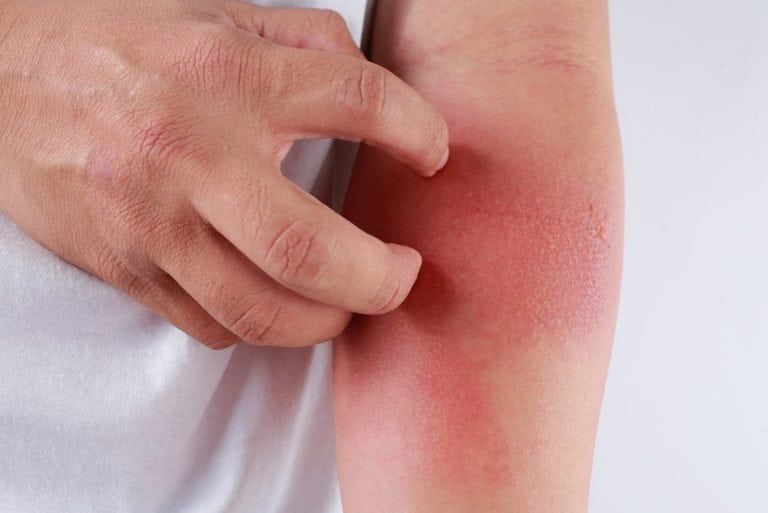Eczema, also known as Atopic Dermatitis, is known as the “itch that rashes.” Between 10-20% of people in the world are affected and, in most cases, it begins to appear very early in life.
In young children, atopic dermatitis presents with itchy, red, scaling patches on the scalp and on the cheeks. By adolescence, eczema tends to move to the inner arms and the back of the knees, but can also affect other areas of the body. In adulthood, atopic dermatitis looks like dry, thickened, scaly skin.
While the cause of atopic dermatitis is not known, studies do show that patients with eczema have a weak skin barrier. As a result, more irritants and allergens can penetrate. Several factors are known to trigger or make it worse. Possible triggers include irritating soaps or detergents, wool clothing, jewelry, and perfume. Sometimes patients with eczema need skin allergy testing to help get a better understanding of allergic triggers. We offer the True allergy test panels, that can diagnose these allergic triggers.
Patients with atopic dermatitis should adhere to the following “gentle skincare” guidelines. We can recommend companies who make skin care products which can help you control eczema by repairing the skin barrier with effective products.
Treatment of mild cases of atopic dermatitis usually begins with topical corticosteroids. However, there are nonsteroidal prescription topical medicines that are very effective and have fewer side effects. Antihistamines may be used to decrease itch and enhance sleep. Antibiotics may be utilized if an infection is present.
For severe cases of atopic dermatitis, a short coarse phototherapy might be recommended. Stronger oral medicines such as Prednisone and Cyclosporin are also used. An exciting new Biologic drug Dupixent has very good results for my patients and much fewer side effects. This drug is similar to the Biologic drugs that are now commonly used for psoriasis.
If you need help managing your eczema, please call our office for an appointment.






